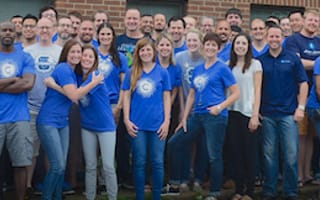Learning the ins and outs of your team, including what motivates and frustrates each individual, can be a tough challenge for any manager. Add in the occasional chaos that can come with working at a fast-moving tech company, and that task becomes all the more challenging.
We asked three Austin tech companies to nominate one of their best managers so we could get answers directly from the source. We wanted to find out what they do to ensure stellar performances from their team, what they look for in new hires and how their management skills complement office culture. Read on for the dirty details.
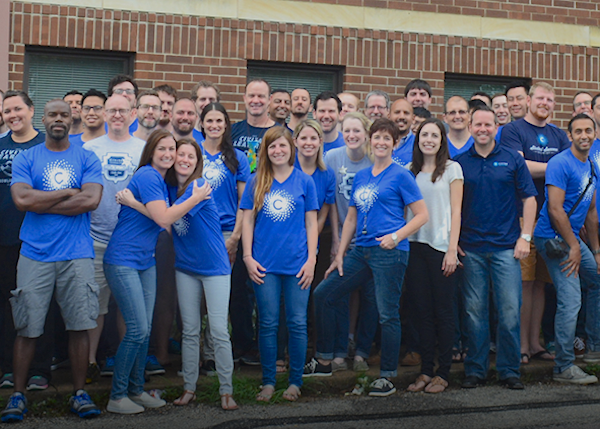
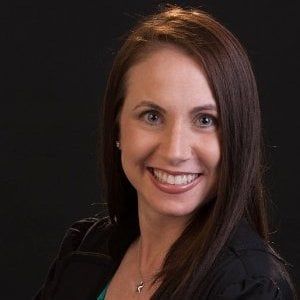 Cheryl Donahue is the VP of strategic partnerships at Civitas Learning, joining the team a year and a half ago. Donahue said she recognized her passion for helping others early on. To meet her personal goal of being a part of leadership, she made sure to always hit and exceed her targets as well as make her ambitions known to both leadership and her teammates — while constantly seeking their feedback for self-improvement.
Cheryl Donahue is the VP of strategic partnerships at Civitas Learning, joining the team a year and a half ago. Donahue said she recognized her passion for helping others early on. To meet her personal goal of being a part of leadership, she made sure to always hit and exceed her targets as well as make her ambitions known to both leadership and her teammates — while constantly seeking their feedback for self-improvement.
“Cheryl blends extreme personal humility with a professional will and resolve that we see in the best leaders,” said CPO Tony Capasso. “She lets her team shine and is extremely effective at empowering them and working through her people.”
What's unique about the way you manage?
I remember what it's like to be in their shoes and their success is my number one priority. I enjoy getting to know what makes each person on our team tick, helping them be successful in their current role and ensure I am helping them work towards their longer-term goals.
As a sales leader, it's comfortable to take over in the moment of a 'big presentation or meeting' and justify it as allowing the team member to watch and learn. It can be uncomfortable to allow the team member to stumble. I'm okay with uncomfortable. I've found that spending more time in the planning process versus in the moment taking over is by far more effective and comfortable. By being patient and allowing each sales person to lead the particular activity, even if not the way I would do it, is more meaningful to them and their growth. Perfection doesn't exist and I don't think there's only one way to accomplish a task. Therefore, I don't tell my team exactly how to do their jobs and I'm learning new things as we go.
What are some of the challenges your team faces, and how do you and your team overcome them?
We're selling software that is mission focused to help a million more students learn well and finish strong each year. We're here because we're passionate about this mission and the unique way our organization is trying to help with a very big challenge in higher education. We're also a startup and we have targets to hit. We're in a unique position and must balance our success in having new partners join Civitas with those partners being ready to lean into the work so that we can achieve the million more mission together.
How do you know if someone will be a good fit for your team?
We have a robust hiring process that involves numerous members across different teams. We spend a considerable amount of time with a candidate to ensure they're a good fit for our team and that we're a good fit for them. We have a great sense of what our culture is and isn't, where our strengths and growth opportunities are on the team. When considering adding a member to our team, we try to balance where we are in the moment with where we're looking to go as a team. The candidate we need today may not be identical to what we needed a year ago or will need a year from now. When in doubt, grab a cup of coffee or a meal with someone, that usually tells you what you need to know.
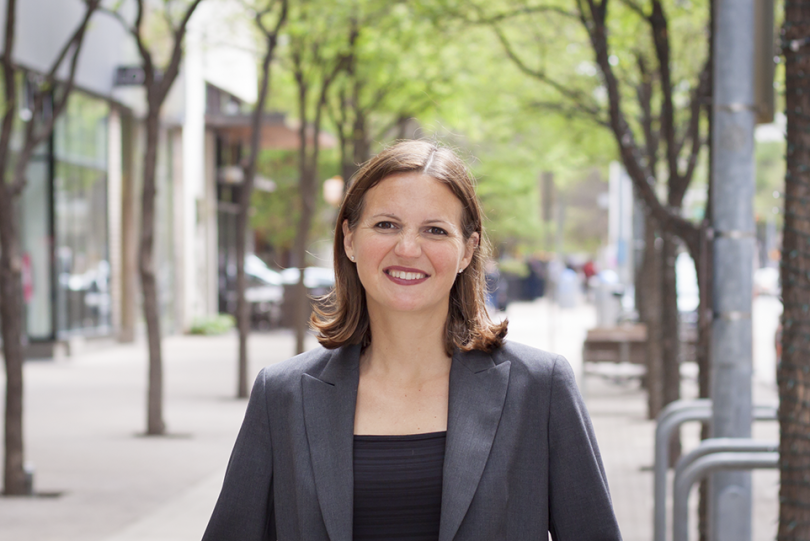
Now six years into her career at Vast, Amy Gieffers is the SVP of engineering and operations at the Austin-based company. Gieffers credits having great mentors and advocates throughout her career who have helped her get where she is today.
“Amy is an amazing leader. Her ability to gracefully take on increasing responsibility in response to Vast's shifting needs is admirable and appreciated,” said CEO John Price. “Her soft skills and her technical acumen are equally engaged and result in the leadership of a team that both respects her and produces their best work.”
How did you work your way up to management?
I started out being successful in my role as an individual contributor — by mastering the fundamentals, being organized and leading through example. It was then an easy transition for me to manage a small team. My team then grew as we wanted to drive alignment between groups and more teams were added to my organization.
What's unique about the way you manage?
I put people in stretch roles. My default is to give my team lots of responsibility. I am an optimist and I believe people can and want to work above their current level. Had I not had stretch opportunities, I wouldn't be in the role I am in now.
What are some of the challenges your team faces, and how do you and your team overcome them?
Communicating and staying in sync with a distributed workforce. I manage a large team across two continents. We rely on all the standard communication tools like Google Hangouts, Slack, Jira and Confluence. But, in-person time is still so important. I visit my team in Belgrade quarterly and we bring people from there to Austin regularly.
The second challenge is managing the expectations of Fortune 500 customers. Our customers are comprised of Fortune 500 customers that have extraordinary expectations on delivery. We've had to build processes and disciplines into the team to be able to scale and deliver great service to these customers.
What's at the core of your team culture?
If someone says it can't be done, the only new information I have is that it can't be done by them. My team knows this and they are always looking for how to address the business need (we always try to focus on the business outcome we’re trying to achieve).
How do you know if someone will be a good fit for your team?
Our focus when hiring is to identify candidates with high IQ and great attitude. The bar for engineering positions is straightforward: you have to be a strong developer. For non-engineering roles, I look less for existing expertise in the domain and focus on finding candidates that are smart, quick learners, with a high ceiling on potential. Above all else, we want people that have a positive, make-it-work attitude.
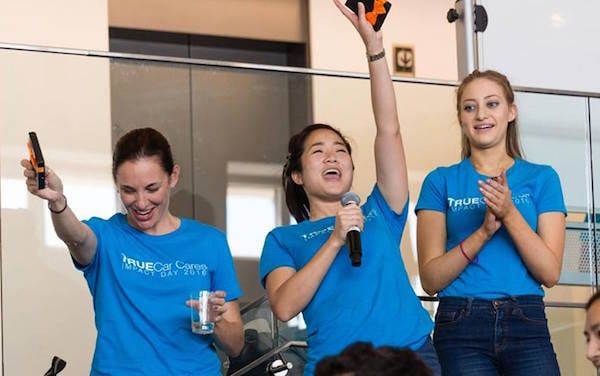
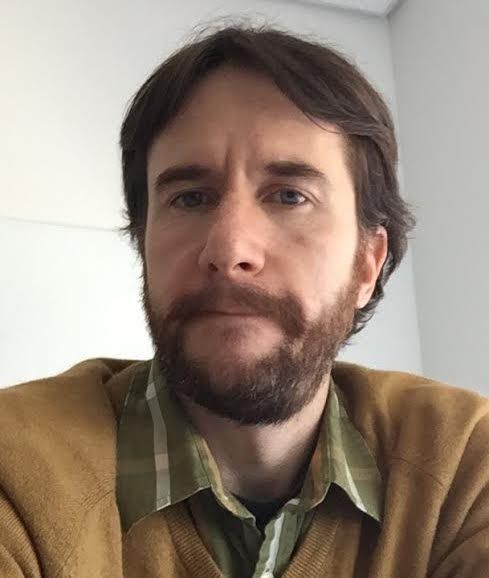 Meet Jake LaCivita, TrueCar’s VP of dealer products. LaCivita has been with the company for eight years and has a history of joining companies as an individual contributor before receiving promotions to more managerial roles.
Meet Jake LaCivita, TrueCar’s VP of dealer products. LaCivita has been with the company for eight years and has a history of joining companies as an individual contributor before receiving promotions to more managerial roles.
This recognition of his leadership and mentoring abilities has also occurred outside of work. Once, without having met any participants in real life, he was nominated and elected commissioner of a fantasy baseball league.
"Jake relentlessly pursues why and how everything works within our business and actively educates those around him until we are all experts on a given subject, equally contributing to the best possible solution for the company,” said CPO Tom Taira.
What's unique about the way you manage?
I try to embrace being more of a “mentor” than a “manager” both with my team and in general. I’m there when you need me, I get out of your way when you don’t, and I make sure the “why” behind any ask or action is always explained. I also challenge my teams to do the same. “Just because” is never the right answer.
What are some of the challenges your team faces, and how do you and your team overcome them?
There are so many product features we want to release, but we have to mindful of company growth. This makes planning and sequencing especially important. I try to instill my team with a “don’t boil the ocean” philosophy to chunk things out into more manageable pieces that can be done more rapidly. I’m also a big proponent of only having deadline pressure when it is truly needed. For the majority of projects, my saying is: “A date is a guess or a lie…and I don’t lie.” Something is ready when it’s ready. When people can accept and sell that idea, I think things run a lot smoother and end results are better.
What's at the core of your team culture?
Our team culture is mainly around sharing knowledge and learning from each other. I like to end all of my team meetings around any discussions anyone has heard since we last met. The primary goal is to head off any potential issues before they appear.
The main idea is to foster greater awareness of what’s going on around you vs. being heads down all the time. This is especially important with our company spread out across multiple cities with frequent travel between offices, so sharing what you’ve heard elsewhere helps to bring the different locations together a little better.
Images provided by companies and social media. Responses have been edited for clarity and length.
Know someone in leadership you'd like to recognize? Email us.
